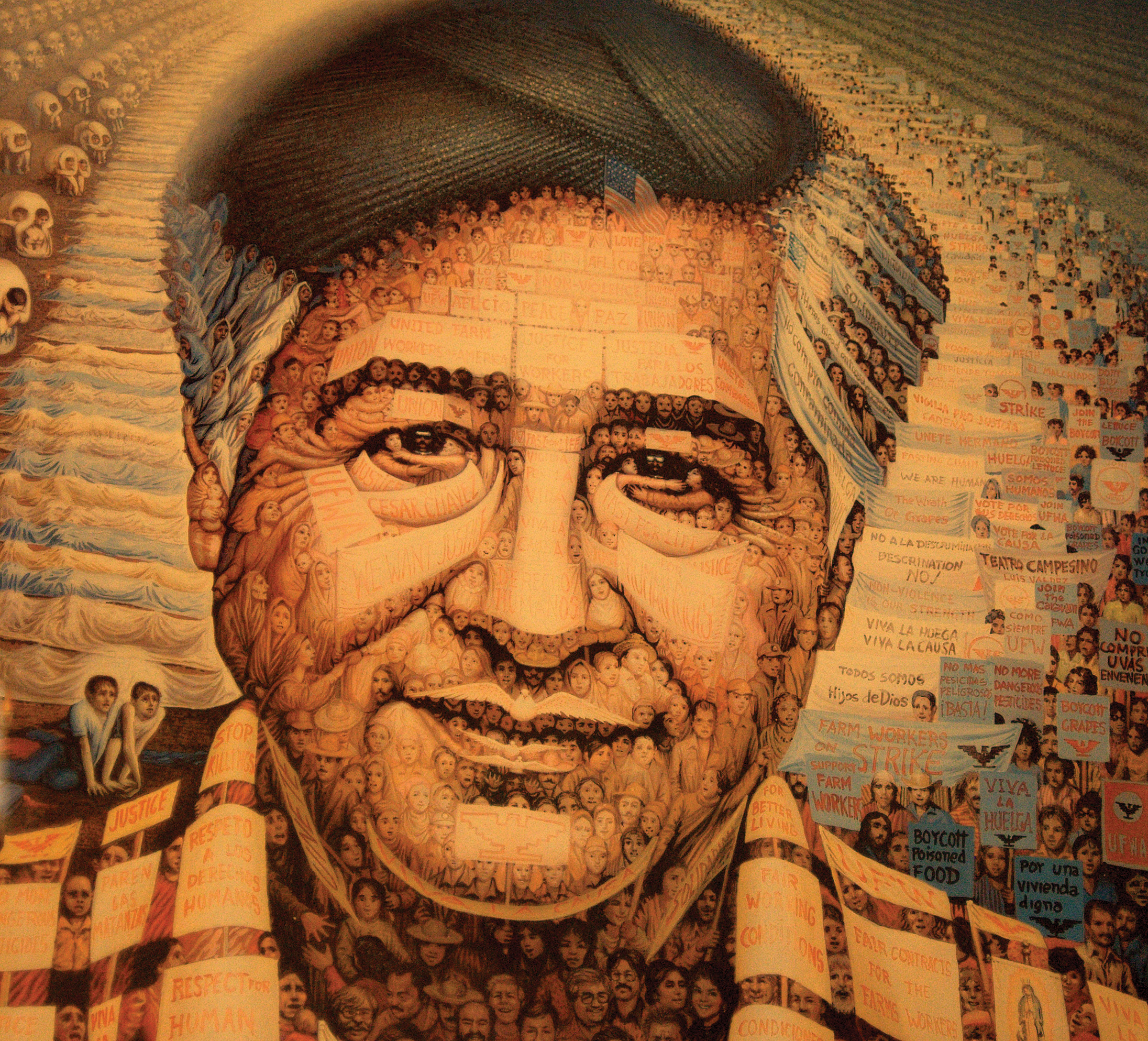
March 31 was César Chávez Day here in the state of California. In the Chicano community, he is seen as a hero for Hispanic and Latino people. Chávez himself was a member of the Chicano community after all and was born in the state of Arizona. If you grew up in the state of California in the 1970s, you likely heard about Chávez and his activism frequently. Hundreds of farmworkers went on strike to achieve more protections out in the fields. Chávez was able to unionize field workers across the state of California with this simple goal of fair treatment. This is a very brief and simplified version of his legacy, but it’s the version most people hold as the truth. This past Thursday, the Chicano Student Program held its 19th annual César Chávez 5k run, open to anyone in the community no matter their background. This community event was held with the intention of bringing people together to celebrate the achievements of César Chávez. The only contradiction here is that Chávez himself didn’t hold the same values of the importance of community unity. Holding Chávez to such a high standard only highlights the Chicano community’s ability to overlook his many faults as a leader.
César Chávez held a hostile mindset towards immigrants coming in from Mexico. Oftentimes, he referred to immigrants by a variety of different racial slurs. He was known to not like the fact that immigrants who came in from Mexico would break picket lines looking for work in the fields. Instead of working to come to a solution which benefited everyone in the community, Chávez would urge his supporters to call immigration on these workers — workers who only wished to provide for their families and who only wanted a brighter future for themselves. When members of the National Farm Workers Association urged him to change his language around immigrants, he simply responded with, “You get these hang-ups.… They’re wets, you know. They’re wets, and let’s go after them.”
This is only a small fraction of the complex legacy left behind by César Chávez. The closer you look into his past, the more this perfect image of a social activist begins to alter, especially when you look into NFWA, which would later become the United Farm Workers of America. It has been reported that he paid his staff little to nothing while using an authoritarian style of leadership. This resulted in many staff members at the time deciding to disassociate with the organization altogether. A hostile working environment which has persisted long after Chávez, with a lawsuit against UFW as recent as 2013. Which cited that employees at the organization had been repeatedly overworked and underpaid.
Powerful phrases like “Viva la Raza” or “Viva César Chávez” are all staples in the Chicano community. However, these phrases have negative connotations when considering the man who coined them was exclusionary not just to immigrants coming in from Mexico, but to key founding communities of the UFW. The Filipino community had already been laying the groundwork for farm worker rights in California years before Chávez. It was on the back of the Filipino community that the very first grape strike was organized which directly led to the creation of the UFW. Yet, when people learn about the creation of the UFW, the Filipino community’s effort is hardly ever recognized. Instead, phrases like “Viva la Raza” are used to alienate people from the cause by prioritizing the Chicano experience instead of the actual community.
Nonetheless, it’s been said that every great hero has their faults. After all, nobody is a perfect person. In the case of César Chávez, it’s a rarity within the Chicano community to hear widespread criticism about his legacy. At its core, the movement that was pushed by Chávez was extremely useful for farm workers across the country, a group that even until this day are widely mistreated in the workforce. This movement undeniably set the issues of these workers on a larger stage. The greater dilemma comes from within the Chicano community. It’s a question of ethical morals, questions that have been successfully avoided for years. We can acknowledge the positive effects of the UFW while simultaneously being critical of its past.







